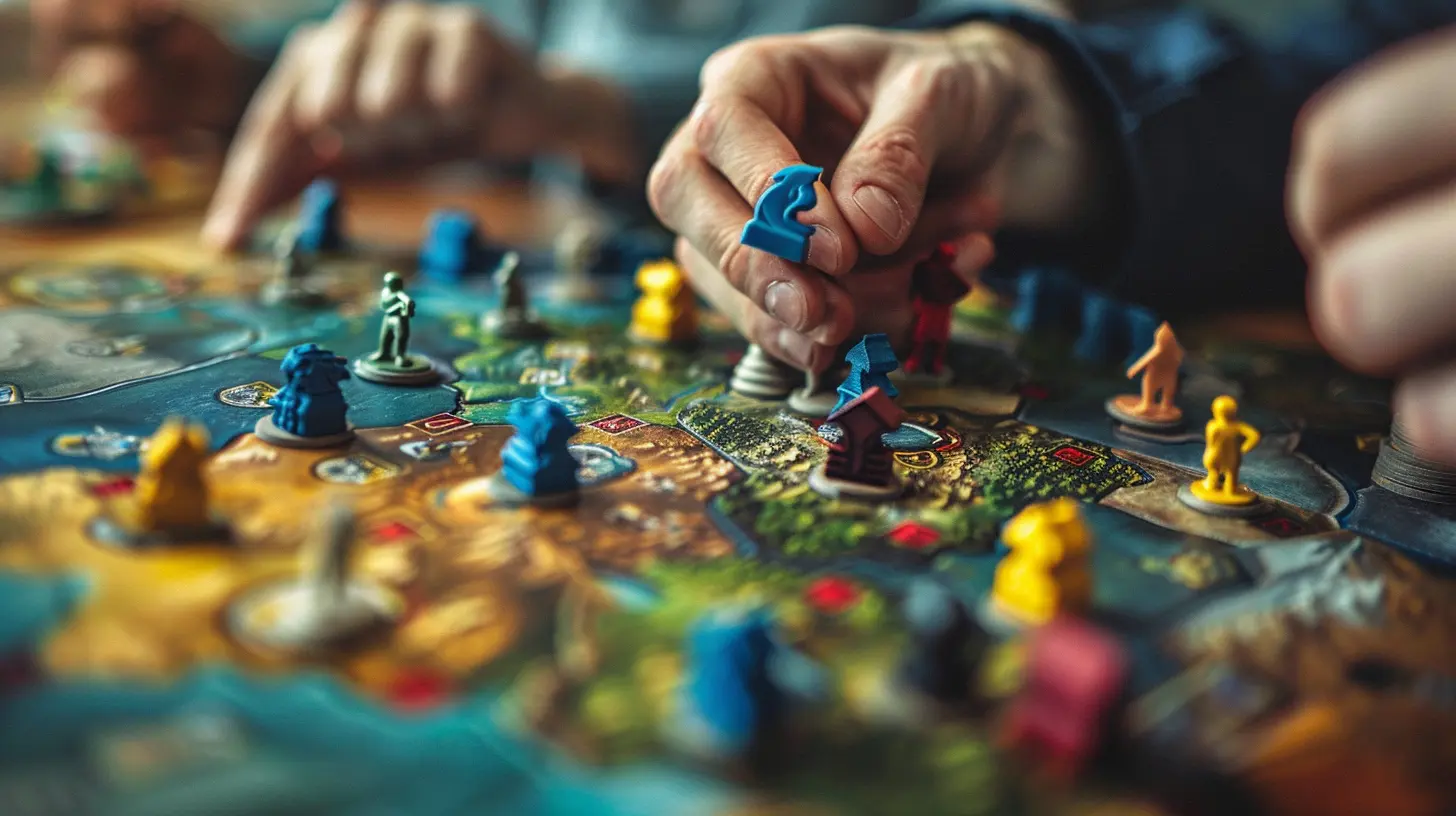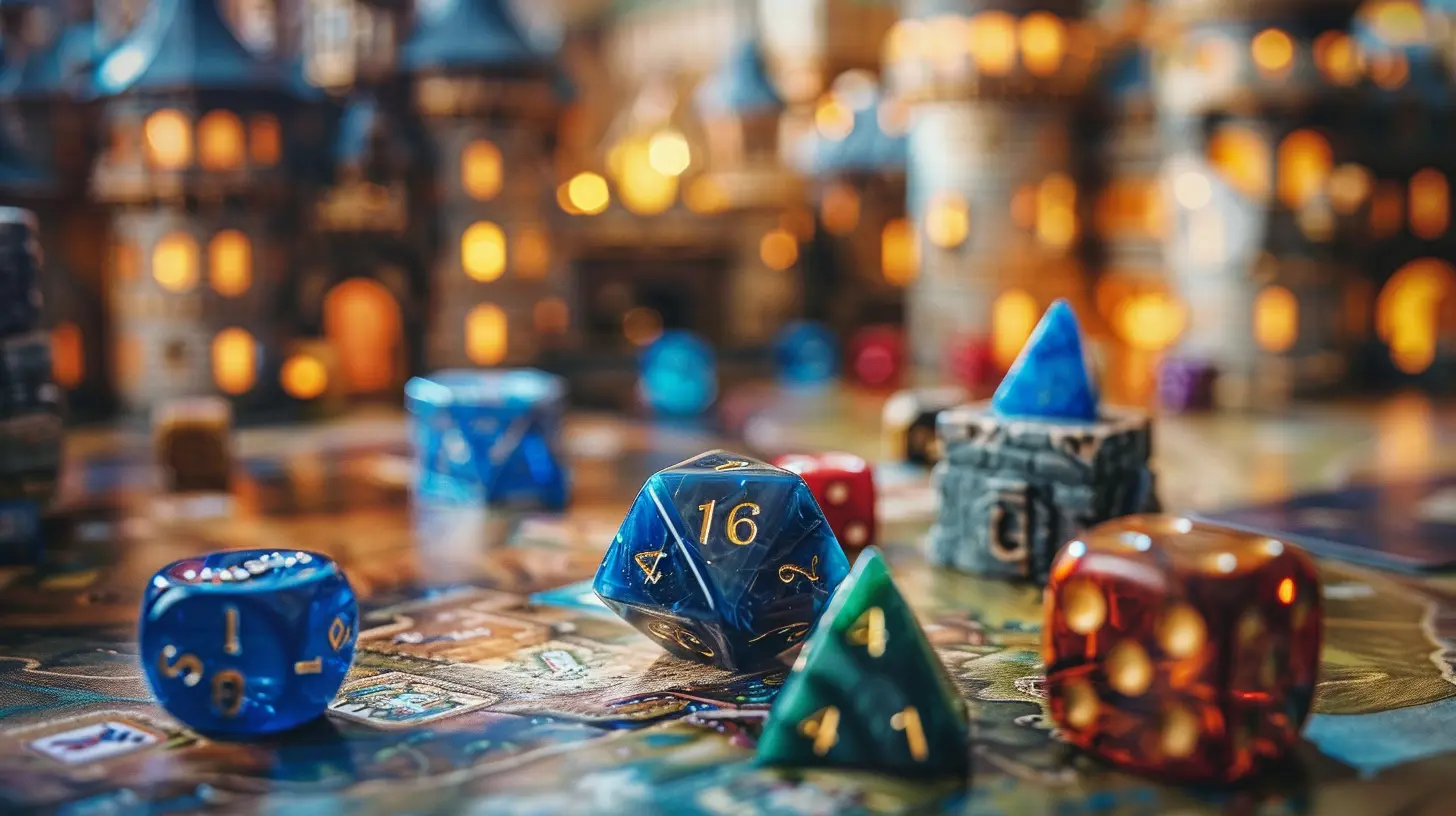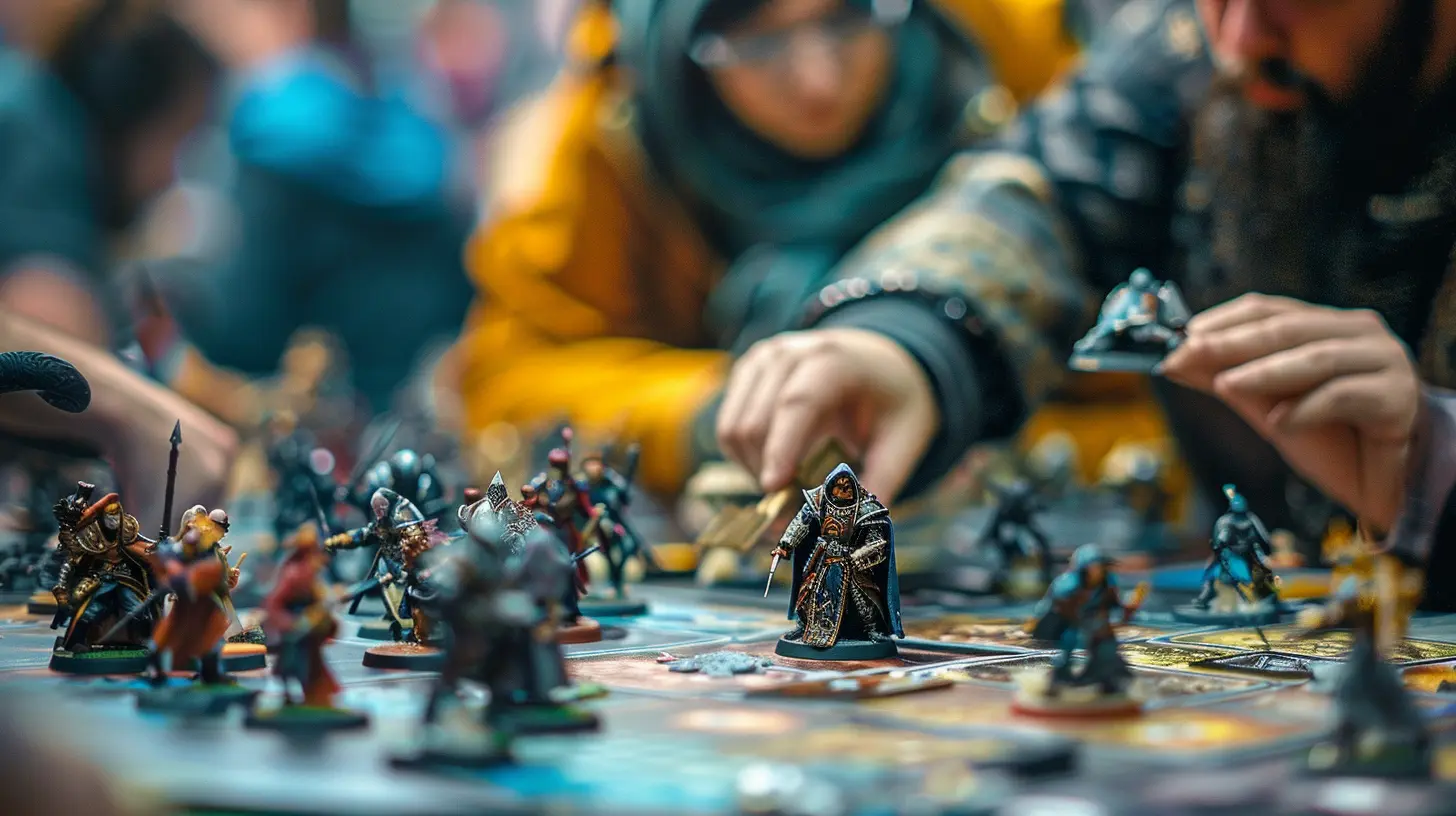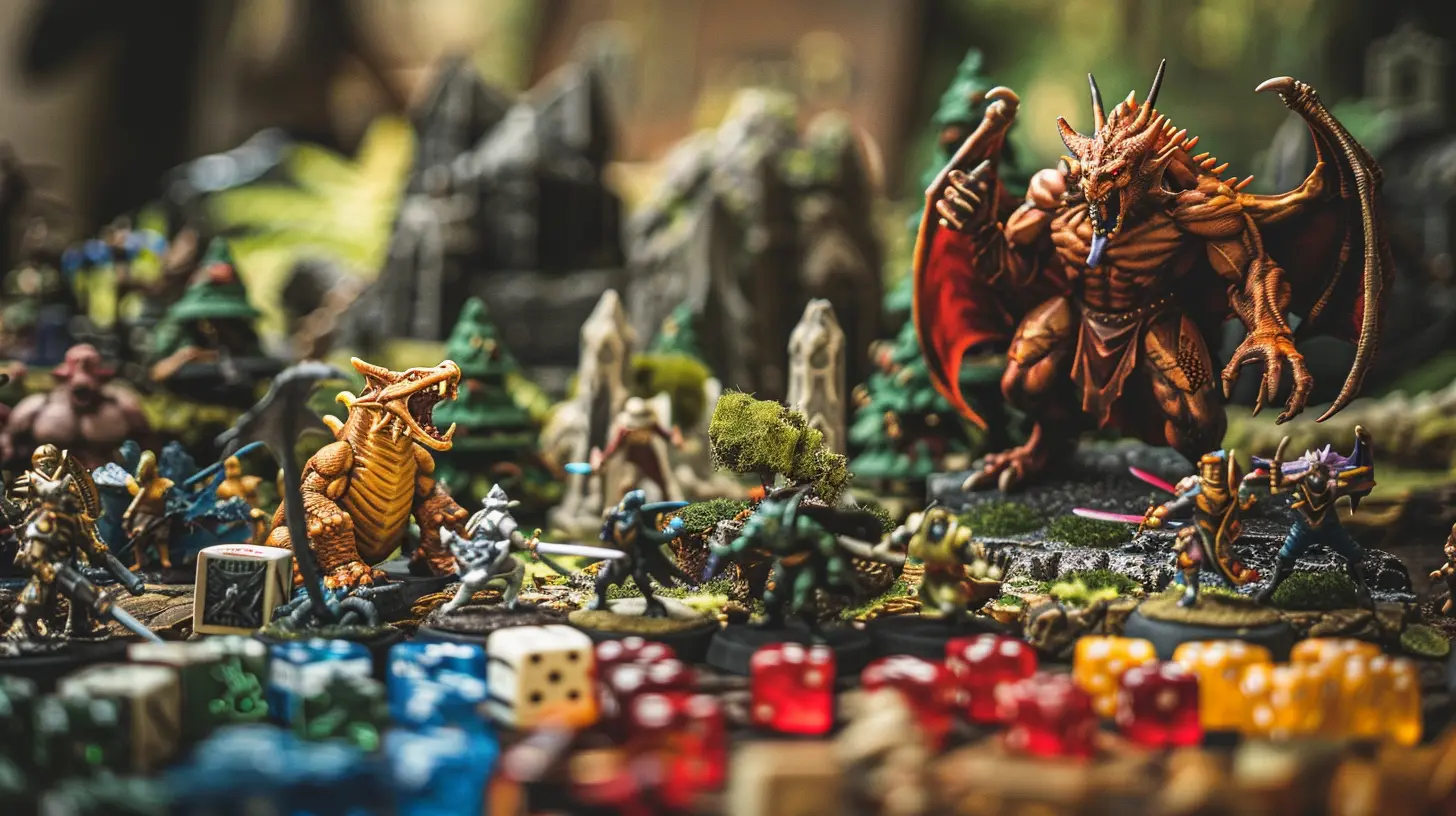How Legacy Games Change the Face of Tabletop Campaigns
30 July 2025
Tabletop gaming isn’t new. For decades, families, friends, and seasoned game nerds have gathered around wooden tables and cracked open boxes filled with dice, maps, and cunning challenges. But today, there's a fresh wind sweeping through the world of tabletop campaigns—Legacy games.
If you're wondering what makes these games so special or why they're a game-changer (pun intended) for tabletop RPGs, you’re in for a treat. Legacy games don’t just offer a simple night of fun; they create stories that unfurl over weeks, even months. It’s kind of like reading an epic fantasy series… except you’re writing it each time you pull up a chair. Intrigued? Let’s dive in.
What Is a Legacy Game?
Alright, let’s start with the basics. A Legacy game is a type of tabletop game that evolves over multiple playthroughs. Unlike your standard board game that resets to square one after every session, Legacy games keep track of what’s happened previously. Decisions have weight. Choices linger. And here’s the kicker: some changes are permanent. Yes, permanent.Think of it like this: imagine tearing up a card, marking up the board with a marker, or unlocking sealed envelopes that add new rules, characters, or story arcs to the game. Sounds wild, right? It’s like giving your board game a memory. Suddenly, your game doesn’t just exist—it lives.
The Rise of Legacy Games: Where Did It All Begin?
The Legacy concept really took off with Risk Legacy, designed by Rob Daviau, back in 2011. Risk, in its original format, was already a notorious friendship-ruiner (don’t lie, you’ve probably argued over Australia). But Risk Legacy cranked things up by introducing permanent changes to the board and a narrative structure that stretched over several games.Soon after, the success snowballed. Games like Pandemic Legacy (which helped reinvent cooperative gameplay) and Gloomhaven (a sprawling campaign dripping with complexity) hit the shelves, sending shockwaves through the tabletop community. And now? Legacy games aren’t just a niche—they’re becoming a staple for hardcore and casual players alike.
How Legacy Games Revolutionize Tabletop Campaigns
Legacy games don’t just make campaigns better—they flip the entire experience on its head. Here’s how:1. The Weight of Consequences
Legacy games introduce real stakes. Remember that time in your regular D&D campaign when your elf rogue “died” but the DM let you reroll because, well, death is inconvenient? Yeah, that doesn’t happen here. In a Legacy game, if you mess up or make a poor choice, there’s no resetting.Maybe a village burns down because you chose to save the treasure instead of the townsfolk. Or a character you’ve grown emotionally attached to perishes forever. These moments stick with you. Every decision feels heavy, raw, and spine-tinglingly real.
It’s like baking a cake without a recipe; one wrong ingredient can change everything.
2. Storytelling That Evolves Over Time
Let’s be honest. We all love a good story, especially in RPGs. The best campaigns give players room to explore sprawling narratives, but Legacy games take it to the next level by weaving tales that adapt organically.Your game literally evolves based on your actions. Plot twists are revealed through hidden envelopes or secret cards waiting to be discovered. You might think you’re playing a straightforward campaign, then—BOOM—a new villain emerges, or a hidden ally reveals their true allegiance.
It’s like watching your favorite TV series, except you’re steering the plot. And trust me, you’ll end up binge-playing just like you binge Netflix.
3. Character Growth Becomes Personal
Sure, most tabletop games let you level up characters, but Legacy games make the process insanely personal. Over multiple sessions, you’ll forge intimate connections with your characters.Maybe you’re the swashbuckling adventurer who gradually descends into corruption. Or possibly, you start a campaign as a naïve farmhand and eventually rise as the kingdom’s champion. Legacy games are the RPG equivalent of growing up and looking back at awkward high school photos—except instead of cringing, you’re fist-pumping with nostalgia.
4. Collaboration Meets Chaos
Legacy games demand teamwork. Or, depending on the game, cunning betrayal. In cooperative Legacy games like Pandemic Legacy, you’ll need your squad more than ever. Strategies evolve as the game escalates. One mistake could mean doom for everyone, so you’ll be communicating constantly—and arguing just as much.But then there’s the dark side: competitive Legacy games. Games like Seafall or Betrayal Legacy sprinkle alliances with just enough deception to keep players on high alert. You might team up with a friend in one session, only to stab them in the back during the next. Savage? Yes, but irresistibly fun.
5. Replay Value and a Dash of Legacy Drama
Ironically, Legacy games are both finite and infinite. That might sound confusing, so let me explain. Most Legacy campaigns have an “endpoint” where the overarching narrative concludes. But the journey you take to get there? That creates memories you’ll talk about for years.And once completed, certain Legacy games allow for post-campaign free play, where you can continue enjoying the changes your campaign introduced. Some even encourage players to tell others about their unique story outcomes. How cool is that? It’s like designing your very own alternate universe. 
Why Legacy Games Matter in Modern Tabletop Culture
Legacy games do more than shake up the mechanics of your average board game. They’re a reflection of how storytelling, collaboration, and gaming are blending in ways we’ve never seen before.In a world obsessed with instant gratification—auto-saves, online checkpoints, and bingeable series—Legacy games ask us to slow down. To savor every decision. To carry forward the weight of our past actions. And honestly, isn’t that what real adventures are all about?
Playing a Legacy game feels like being part of a living, breathing canvas. It’s unpredictable, exhilarating, and deeply human. And that’s not something you can manufacture.
Top Legacy Games to Check Out
Not sure where to start? No worries—I’ve got you covered. Here are a few killer Legacy games you need to try:- Pandemic Legacy (Season 1): If you’re up for a nail-biting cooperative challenge with apocalyptic stakes, this one’s a no-brainer.
- Gloomhaven: A massive, dungeon-crawling masterpiece dripping with character development and exploration.
- Betrayal Legacy: A spooky mansion adventure filled with treachery and surprises.
- Clank! Legacy: Acquisitions Incorporated: Deck-building meets storytelling, with a healthy dose of humor.
- Charterstone: Perfect for players who love city-building mechanics mixed with lasting choices.
Each of these games offers something unique, but all come with the promise of unforgettable adventures and game nights that stretch long into the future.
Final Thoughts
Legacy games are more than just a trend—they’re a revolution. For tabletop campaign enthusiasts, they don’t just tweak the formula; they rewrite it completely. Whether you’re someone who thrives on drama, loves deep storytelling, or just wants to bond with friends over something truly unique, Legacy games are where it’s at.So grab your dice, assemble your crew, and dive into the chaos. And remember—your choices will echo throughout every session. No pressure, right?
all images in this post were generated using AI tools
Category:
Tabletop GamesAuthor:

Lana Johnson
Discussion
rate this article
2 comments
Adam McNeal
What a fascinating read! Legacy games truly bring a fresh dynamic to tabletop campaigns, fostering unforgettable moments and deeper connections among players.
January 27, 2026 at 4:42 AM
Shannon Lynch
This article raises fascinating points about legacy games! I’m intrigued by how evolving storylines impact player choices and group dynamics. Do legacy games foster deeper connections between players, or do they limit individual creativity? I’d love to hear more about your experiences with them!
August 19, 2025 at 4:14 AM

Lana Johnson
Thank you for your insightful comment! Legacy games often enhance player connections through shared experiences and evolving narratives, though they can sometimes limit individual creativity by enforcing a collective storyline. I’d love to discuss this further!


